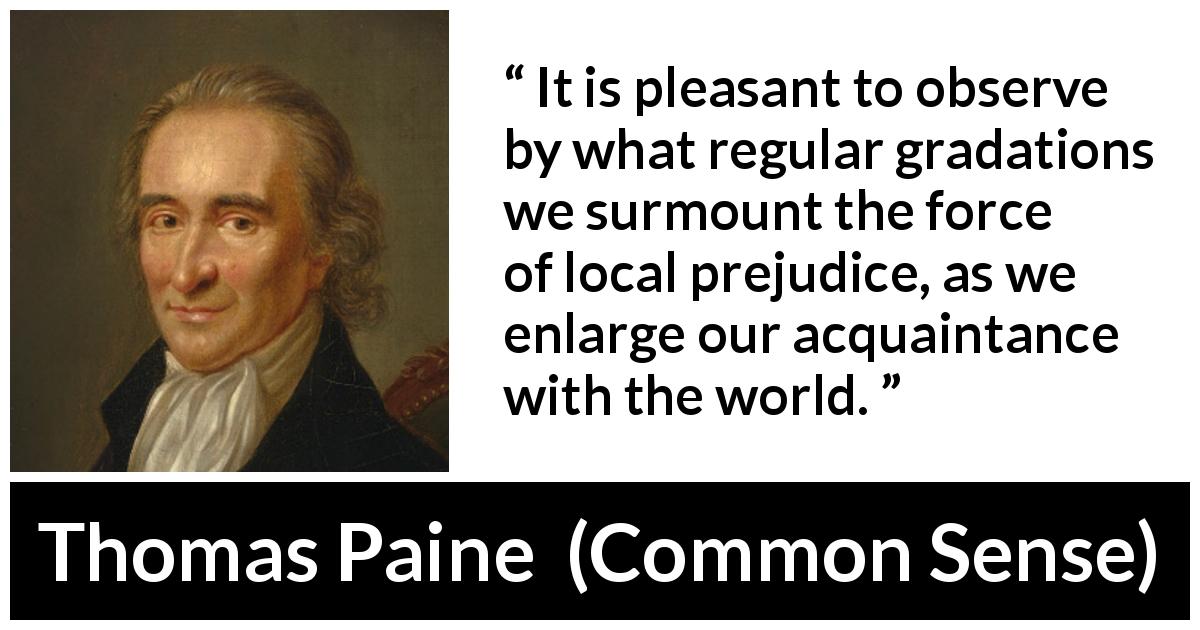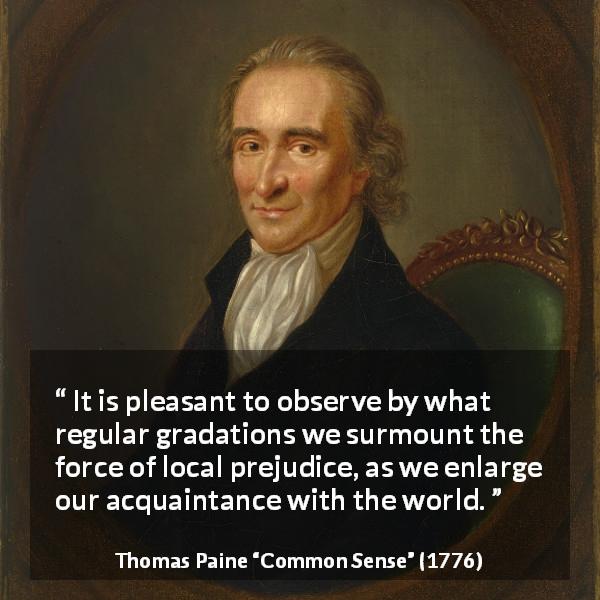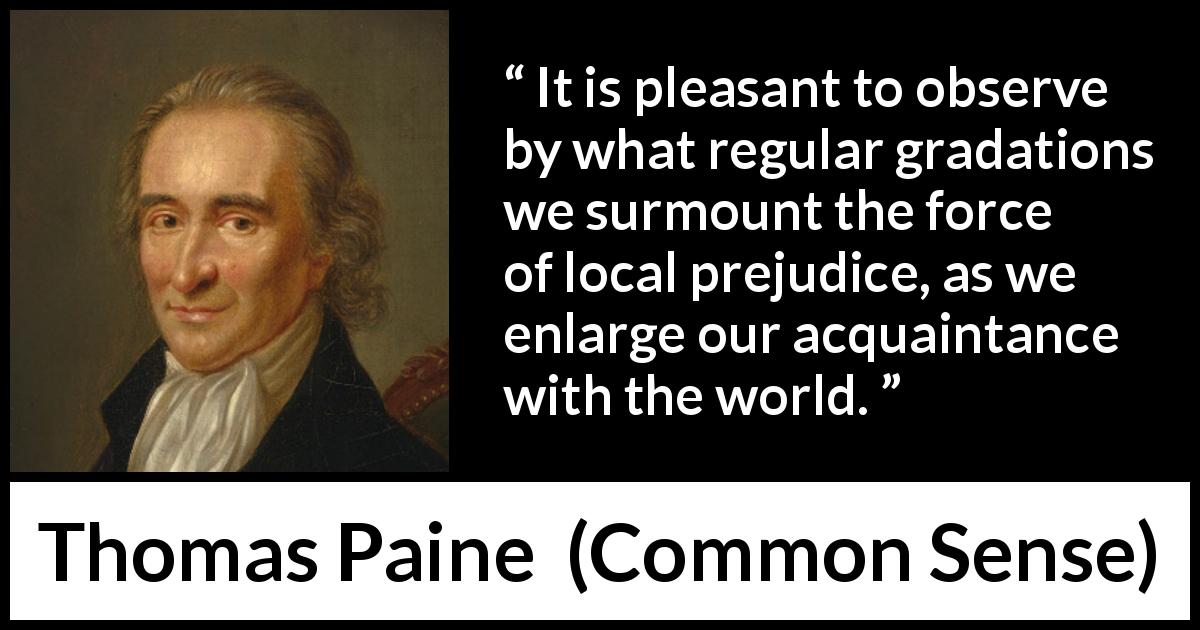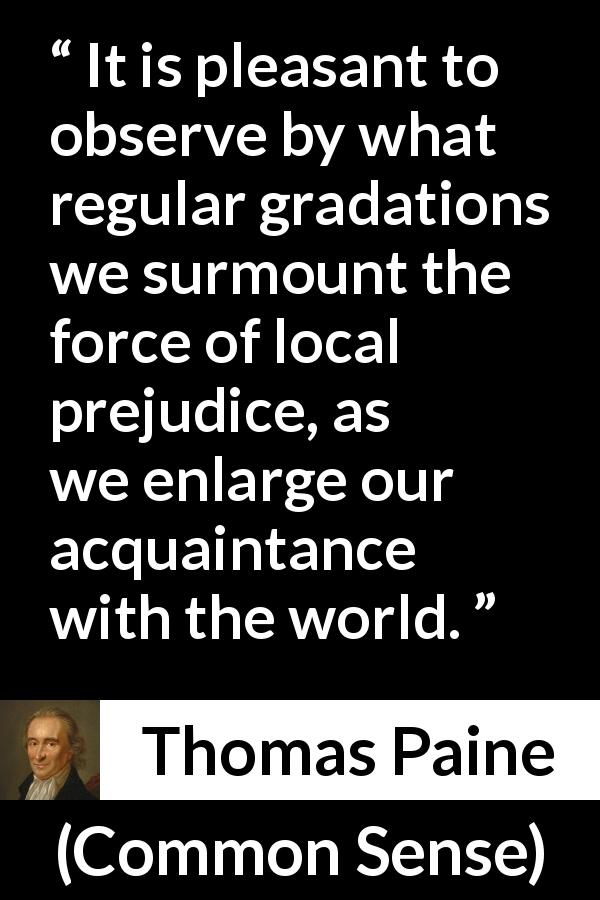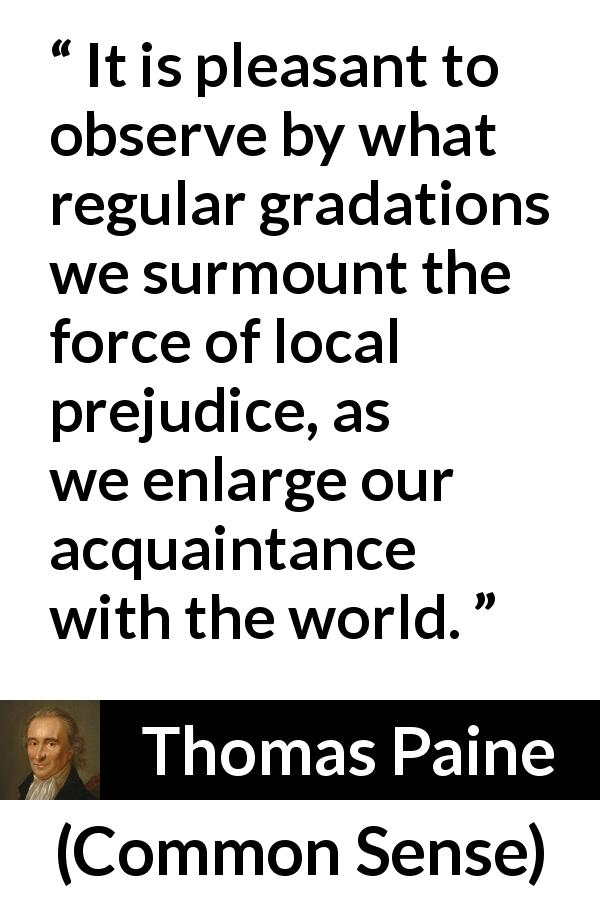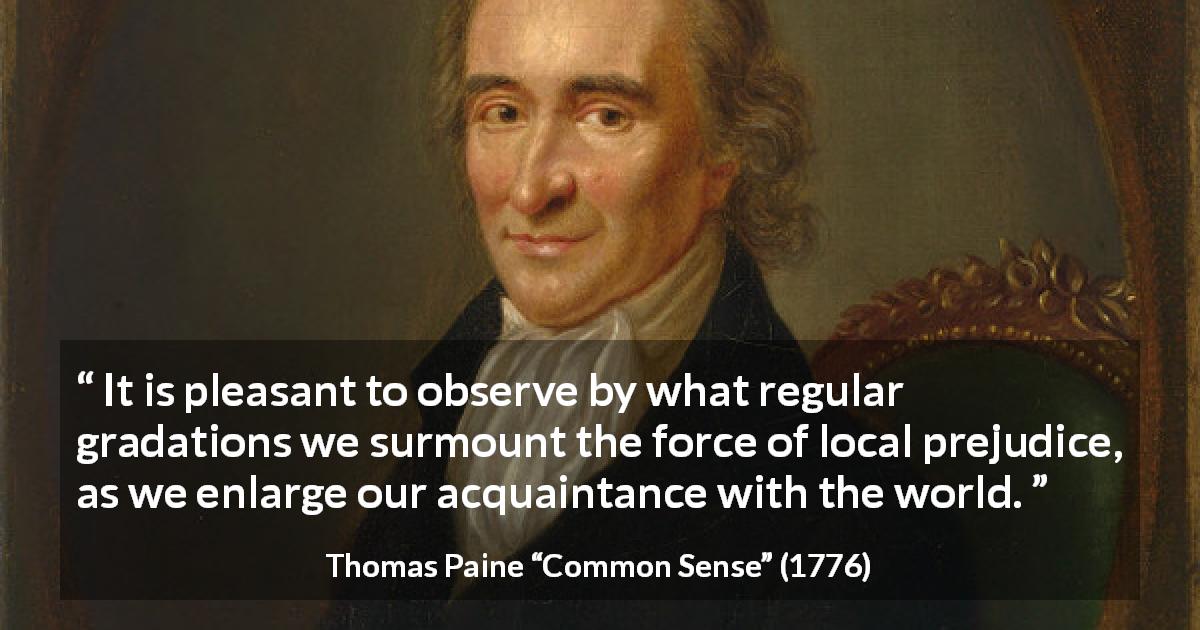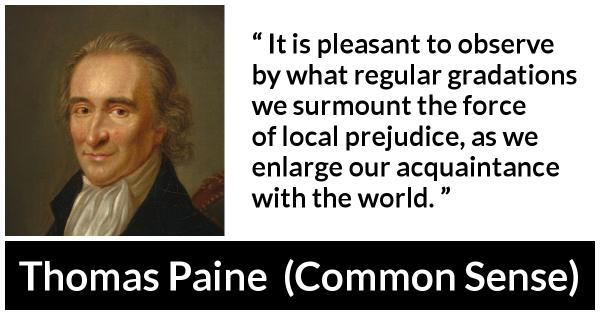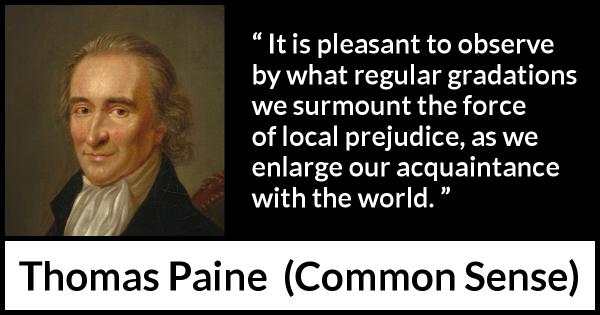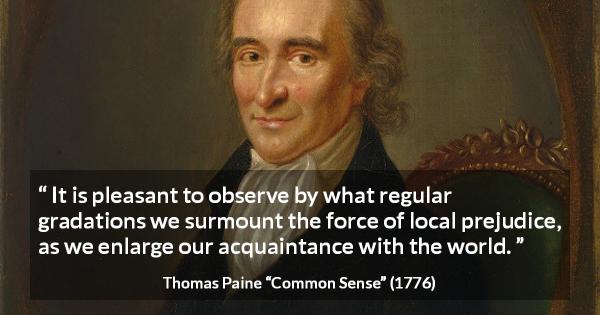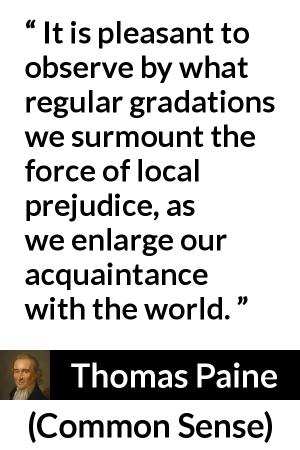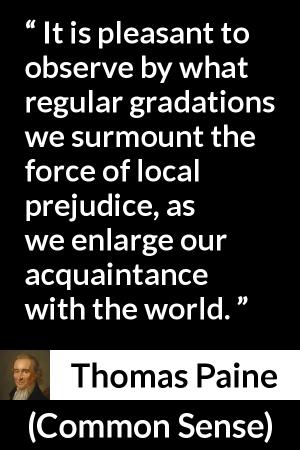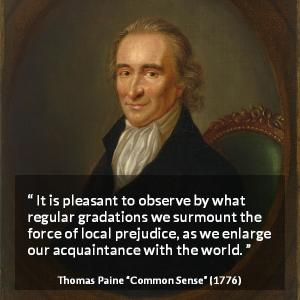“ It is pleasant to observe by what regular gradations we surmount the force of local prejudice, as we enlarge our acquaintance with the world. ”
Thomas Paine, Common Sense (1776). copy citation
| Author | Thomas Paine |
|---|---|
| Source | Common Sense |
| Topic | knowledge experience prejudice |
| Date | 1776 |
| Language | English |
| Reference | |
| Note | |
| Weblink | http://www.gutenberg.org/files/147/147-h/147-h.htm |
Context
“66 In this extensive quarter of the globe, we forget the narrow limits of three hundred and sixty miles (the extent of England) and carry our friendship on a larger scale; we claim brotherhood with every European christian, and triumph in the generosity of the sentiment.
67 It is pleasant to observe by what regular gradations we surmount the force of local prejudice, as we enlarge our acquaintance with the world. A man born in any town in England divided into parishes, will naturally associate most with his fellow parishioners (because their interests in many cases will be common) and distinguish him by the name of neighbour; if he meet him but a few miles from home, he drops the narrow idea of a street, and salutes him by the name of townsman; if he travel out of the county, and meet him in any other, he forgets the minor divisions of street and town, and calls him countryman, i.e.” source
67 It is pleasant to observe by what regular gradations we surmount the force of local prejudice, as we enlarge our acquaintance with the world. A man born in any town in England divided into parishes, will naturally associate most with his fellow parishioners (because their interests in many cases will be common) and distinguish him by the name of neighbour; if he meet him but a few miles from home, he drops the narrow idea of a street, and salutes him by the name of townsman; if he travel out of the county, and meet him in any other, he forgets the minor divisions of street and town, and calls him countryman, i.e.” source
